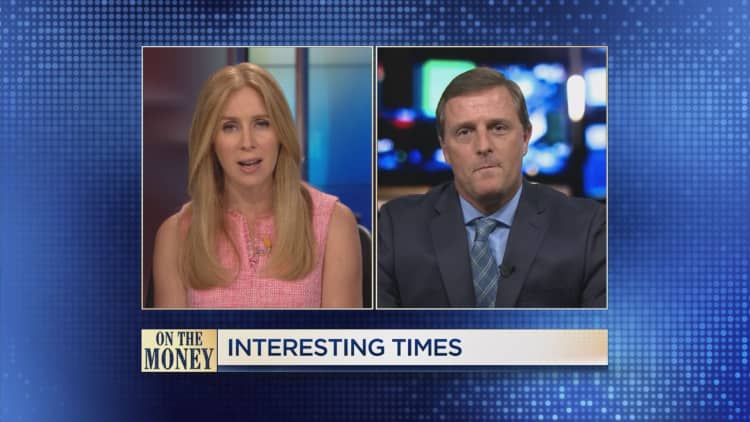President Donald Trump has said he doesn't like the Federal Reserve's decision to continue to hike interest rates, but many Americans disagree.
As another Open Market Committee meeting of the Federal Reserve gets underway, recent signs of rising inflation, which pushed the central bank into hiking rates beginning in 2015, aren't necessarily bad, some investors say in a new poll.
Rising rates are generally considered an indication that the economy is doing well, and often pave the way for pay raises and a better return on savings.
Forty-nine percent of those polled by E-Trade said "a better return on my savings" was the most important effect of rising interest rates, while 31 percent said it was making "borrowing money more expensive."
"For people who have savings, this is finally their day in the sun after a decade of near-zero returns," said Greg McBride, chief financial analyst at Bankrate.com.

Only 8 percent in the survey were primarily concerned about the variable interest rate on their credit card, which rises in lockstep with the Fed's benchmark rate.
Although the Fed raised the federal funds rate eight times in two years, those hikes largely hadn't trickled down to consumers in the form of better savings yields until recently.
Savings yields move higher
While the average interest rate on a savings account is still only 0.2 percent, some top-yielding savings accounts are now as high as 2.25 percent, up from 1.1 percent in 2015, according to Bankrate. (You can earn even more with certificates of deposit.)
With a savings rate, or annual percentage yield, of 0.2 percent, a $10,000 deposit earns just $20 after one year. At 2.25 percent, that same deposit would earn $225.
"Finding yields of 2.25 is enough to maintain your buying power and be best positioned for further increases in rates," McBride said.
The Fed began a two-day meeting Wednesday with a policy statement set for Thursday afternoon. The Fed is largely expected to hike rates once more in December, despite the criticism from Trump.
E-Trade polled nearly 1,000 active investors in October who have at least $10,000 in an online brokerage account. The survey has a margin of error of 3.2 percentage points.
More from Personal Finance:
Here's what that Fed rate hike means for your wallet
Here are the savings accounts where your cash will grow
Credit card interest rates spike, post-Fed


